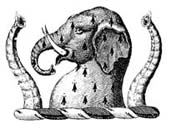
Anglicanism, Catholicism & The Significance of the “Anglican Use” in The Catholic Church
THE DIASPORA OF TRADITIONAL ANGLICANS
Although I am a professional historian, with a specialization in 16th-century England, I have had little practical experience of the “Anglican Use” within the Catholic Church, save for occasional attendance at Masses at the Congregation of St. Athanasius in the Boston area. However, I have had an interest in both Anglicanism and Eastern Orthodoxy since my undergraduate days at Georgetown some 30 years ago. As a graduate student at Yale I fell away from Catholicism in all but name — de facto but not de jure — and lived as an Anglican for some five years, in America and then in England, before “reverting” to the Catholic Church in 1979. Since then I have maintained a strong interest in the decay of historic orthodoxy among the Anglican Churches of the English-speaking world, and in the varied fortunes of the “continuing Anglican” bodies that have seceded from official Anglicanism.
In addition to this, it was my great fortune to have met the late Canon Eric Mascall — a deeply committed and erudite British Anglo-Catholic if ever there was one — as a result of an impulsive decision on Good Friday in 1977 to hear him preach at the Three Hours’ Devotion at the Church of the Transfiguration in New York. We exchanged a few words at the time, and when it became clear that I was to leave Yale for Cambridge University in the Fall of 1978, I wrote to him and he invited me for tea at the Presbytery of St. Mary’s, Bourne St., where he lived for over 25 years after leaving Christ Church, Oxford, for the position of Professor of Historical Theology at King’s College, London, in 1962. This was the first of a long series of such meetings over the eight years that I was to live in England. During my subsequent summer stays in London I visited him at the nursing home in Seaford, on the Sussex coast, where he lived for the last five-and-a-half sad years of his life, after contracting a debilitating illness in 1987, from which he never fully recovered.
In England especially, my life was marked by a number of friendships with intelligent orthodox Catholics who had once been Anglicans, and who brought into the Church a certain sensibility that was not at ease with the often ill-starred “experimentation” in the decades after Vatican II, including the well-known Dominican theologian Fr. Aidan Nichols (who became a Catholic as an undergraduate at Christ Church, Oxford) and Prof. John Saward (Chaplain of Lincoln College, Oxford and then Vicar of Tregony in Cornwall before becoming a Catholic in 1979). Understandably therefore, I am a strong sympathizer with the “Anglican Use” and its place in the Catholic Church. And I am also someone who believes that the proper goal, or telos, of historical Catholic Anglicanism is within the Catholic Church.
In this essay, I want to present some thoughts about the future of Anglicanism in its differing contemporary manifestations, the future of Roman Catholicism in the U.S. and similar milieux, and the significance of the “Anglican Use,” as well as a rationale for its place in the Catholic Church.
You May Also Enjoy
The work of Dorothy Sayers is very much all of a piece; she was a thinking and believing Anglican throughout her literary career.
From first to last, The Whimsical Christian provides the unadulterated pleasure of watching the workings of a powerful Christian mind.
Anne Barbeau Gardiner shows "that Dryden’s poem has a grand and unified design that has hitherto gone unnoticed.”

